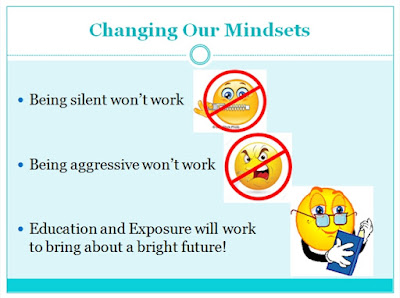Recap of the January 2016 Gilbert Supporters of the Gifted Guest Lecture
How to Talk About Giftedness - PART 1 (of a 5 part series)
The Gifted Label and Changing Mindsets
Bringing Giftedness Out into the Daylight! A.K.A. Talking to others about giftedness, the Elephant in the Room!
It’s difficult to discuss giftedness with others. Will I, as a parent of a gifted child, be perceived as elitist? Will their eyes roll and they not believe me when I say my kid has struggles too? If I don’t talk about it, how will I find others who understand what I deal with every day? How will I find what is needed to help my child grow?
As parents of gifted kids, what can we do?
We can learn to comfortably talk about giftedness in order to help create change. We can start right where we are by refusing to agonizing over a better word. As we fight the battle of semantics we are losing the war. We can help desensitize people to the word “gifted” by educating them on its FULL meaning. We can stop concentrating solely on what gifted is and give equal due to what it is NOT. We all know it is NOT a guarantee of success. It is NOT a life on the yellow brick road.
We can form alliances and look for common ground because it builds empathy and support. We can go beyond “preaching to the choir.” We can recognize and use common vocabulary, such as “work ethic,” “emotional development,” “learning to deal with frustration and competition,” etc.
The Gifted Label
The gifted label does have its benefits. It is helpful when requesting services. It is helpful in the legislative venue, whether it’s a local, state or national level. If we can’t name this condition then we are stuck! So, we must change the understanding of the label. Labels have changed throughout history and we can do our part to change the understanding of the gifted label.
(For an example from history on how some labels have changed from the 1960’s to now, see the personal boyhood incident of Dr. Ben Carson in the book Gifted Hands, p. 38-39)
When talking about the gifted label, don’t get bogged down in the detailed definitions like percentile rankings, IQ scores, etc. In this war these are less important than describing characteristics. Use your own passion and affiliations to:
· Share with professionals (pediatricians, family therapists, etc.)
· Comment on social media
· Be public: Respond to blogs, write articles, have conversations, conduct meetings, teach, present, etc.
The Problem and Its Roots
The problem exists because there is a reluctance in our society to discuss giftedness, and because of this the needs of gifted children are not addressed.
The Roots of this problem are due to the fact that -
1. Society limits giftedness to education
2. Myths about giftedness are entrenched
3. The concept of intelligence creates discomfort
Giftedness is broadly misunderstood and is often discussed only in the context of eminence, achievement and success. This fosters the perception of elitism and perpetuates the myth that only the gifted can be successful in life. Also, across all disciplines giftedness is misunderstood to be a topic only about education. However, giftedness affects the development of the whole gifted child – intellectually, socially, emotionally, etc.
Solving these problems requires changing deep rooted mindsets …
Commit to being part of the solution. Commit to speaking up. Commit to educate without being aggressive.
Now that we’ve laid some groundwork regarding our mindsets, part two of this series will provide tips on how to bust some common myths about giftedness. STAY TUNED!




No comments:
Post a Comment